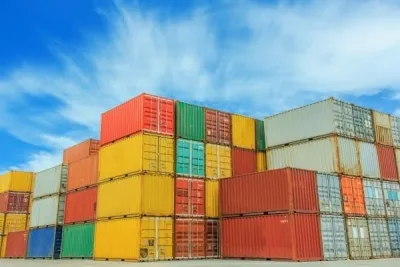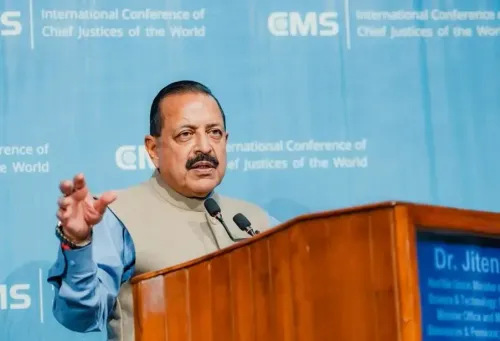How is India’s export sector thriving despite geopolitical tensions?

Synopsis
Key Takeaways
- India's export sector is resilient amid geopolitical tensions.
- Government and industry collaboration is crucial for minimizing disruptions.
- Short-term impacts on logistics and demand are anticipated, especially in the Gulf region.
- Indian exporters are adapting by diversifying markets and managing financial risks.
- FIEO supports exporters with guidance and market intelligence.
New Delhi, June 23 (NationPress) Despite the rising geopolitical tensions in the Middle East, particularly the ongoing Iran-Israel conflict, India's export sector showcases remarkable resilience and adaptability, as stated by the Federation of Indian Export Organisations (FIEO) on Monday.
The trade relations with both Iran and Israel, though significant, represent a relatively minor portion of India's overall import-export activities.
FIEO President S.C. Ralhan mentioned, "The government and industry are collaboratively observing the situation to minimize disruptions."
"We expect some short-term effects on demand and logistics, especially in the Gulf region, a vital hub for Indian exports. The increase in shipping costs, extended transit durations, and climbing marine insurance premiums may exert pressure, particularly in price-sensitive sectors," he added in a statement.
A broader conflict in the Middle East could impact oil supply from nations such as Saudi Arabia, Iraq, Kuwait, and the UAE, potentially causing a significant rise in oil prices. Additionally, shipping operations may be affected, as Yemen's Houthi rebels have indicated they might resume attacks on vessels if the US engages in military action against Iran.
India's crude oil imports account for approximately 85 percent of its total requirements.
Nevertheless, Indian exporters have consistently shown their capability to adapt by re-routing shipments, diversifying their markets, and effectively managing financial risks, according to FIEO.
The strong presence of MSMEs and large exporters, along with robust government support systems, will help mitigate any immediate challenges.
Crude oil price fluctuations are being monitored closely, as they could affect both inflation and logistics expenses. However, India's diversified energy procurement strategy and the proactive measures taken by the Reserve Bank are crucial for maintaining liquidity and macroeconomic stability.
"In summary, while we face some temporary challenges, we view this as an opportunity for Indian exporters to explore alternative routes, enhance regional partnerships, and solidify India's position as a trustworthy trade partner during uncertain times," Ralhan stated.
FIEO remains dedicated to providing exporters with timely guidance, market insights, and policy advocacy to maintain our momentum in global trade.
In May, India's total merchandise and services exports reached $71.12 billion, marking a growth of 2.77 percent compared to the same month last year.









